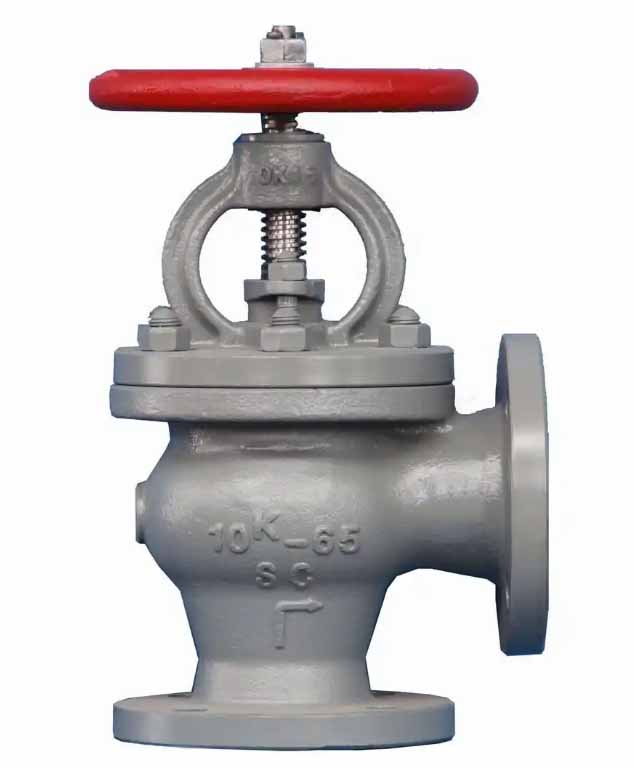1. Introduction to Marine Valves
Marine valves serve as critical control elements in ship piping systems, regulating, isolating, or redirecting fluid flow to ensure proper operation of various vessel systems. These specialized valves act as the “nerve centers” connecting propulsion plants, auxiliary machinery, and piping networks, playing a vital role in maritime safety and operational efficiency.
Compared to standard industrial valves, marine valves possess distinct characteristics:
- Enhanced corrosion resistance for harsh marine environments
- Robust construction to withstand ship motion and vibration
- Compact design for space-constrained installations
- Superior reliability and fail-safe requirements
- Compliance with stringent IMO and classification society standards (ABS, DNV, LR, etc.)
2. Major Types of Marine Valves & Applications
2.1 Functional Classification
Gate Valves: Designed for complete flow isolation in pipelines, these represent the most common valve type aboard ships. Typical applications include seawater systems, fuel oil systems, and ballast water systems.
Check Valves: Also called non-return valves, they permit unidirectional flow only, preventing backflow. Essential for lube oil and cooling water circuits in propulsion systems.
Control Valves: Provide precise regulation of flow rate, pressure, and other parameters. Crucial components in steam systems and HVAC installations.
Safety Valves: Automatically relieve excess pressure, serving as critical protective devices for boilers, pressure vessels, and other high-pressure equipment.
2.2 Structural Classification
Globe Valves: Feature a spherical body with a movable disk-type element, offering excellent throttling capability and positive shut-off. Widely used in steam service and auxiliary systems.
Butterfly Valves: Compact, lightweight design with a rotating disc provides quick operation and space-saving advantages, particularly valuable in engine room installations.
Ball Valves: Quarter-turn operation with reliable sealing makes these ideal for LNG carriers and chemical tankers where bubble-tight shutoff is required.
Plug Valves: Simple construction with rapid open-close functionality suits frequent operation needs such as firefighting systems.
3. Material Selection for Marine Valves
Proper material selection directly impacts valve service life and reliability in marine applications. Key considerations include:
- Corrosion Resistance: Must withstand seawater, salt spray, and various chemical media
- Mechanical Strength: Adequate for system working pressures and potential shock loads
- Temperature Compatibility: From cryogenic LNG service to high-temperature steam applications
- Cost-Effectiveness: Balancing performance requirements with economic factors
Common materials include:
- Bronze (for seawater service)
- Stainless steel (316/316L for superior corrosion resistance)
- Duplex steel (for high strength and chloride resistance)
- Special alloys (for extreme conditions)
4. Marine Valve Standards & Certifications
Marine valves must comply with international and classification society requirements:
- IMO Regulations: Including SOLAS and MARPOL provisions
- Classification Rules: ABS, DNV, LR, BV, and other society specifications
- Industry Standards: ANSI, API, ISO, DIN, JIS, and GB standards
- Testing Requirements: Pressure tests, fire-safe tests, and cryogenic tests as applicable
5. Maintenance & Operational Considerations
Proper valve maintenance ensures long-term reliability:
- Regular lubrication of moving parts
- Periodic inspection of sealing surfaces
- Operational checks for smooth functioning
- Proper storage of spare parts
- Crew training on correct operation procedures
Emerging trends include smart valves with condition monitoring capabilities and advanced materials for extended service intervals.
6. Conclusion
As fundamental components of shipboard systems, marine valves require careful selection, proper installation, and systematic maintenance. Understanding their characteristics, applications, and operational requirements contributes significantly to vessel safety, efficiency, and regulatory compliance. Continuous technological advancements promise even more reliable and intelligent valve solutions for future marine applications.

Our Products:
https://lwmarine.com/product-category/marine-outfitting-equipment-hardware/marine-valve/